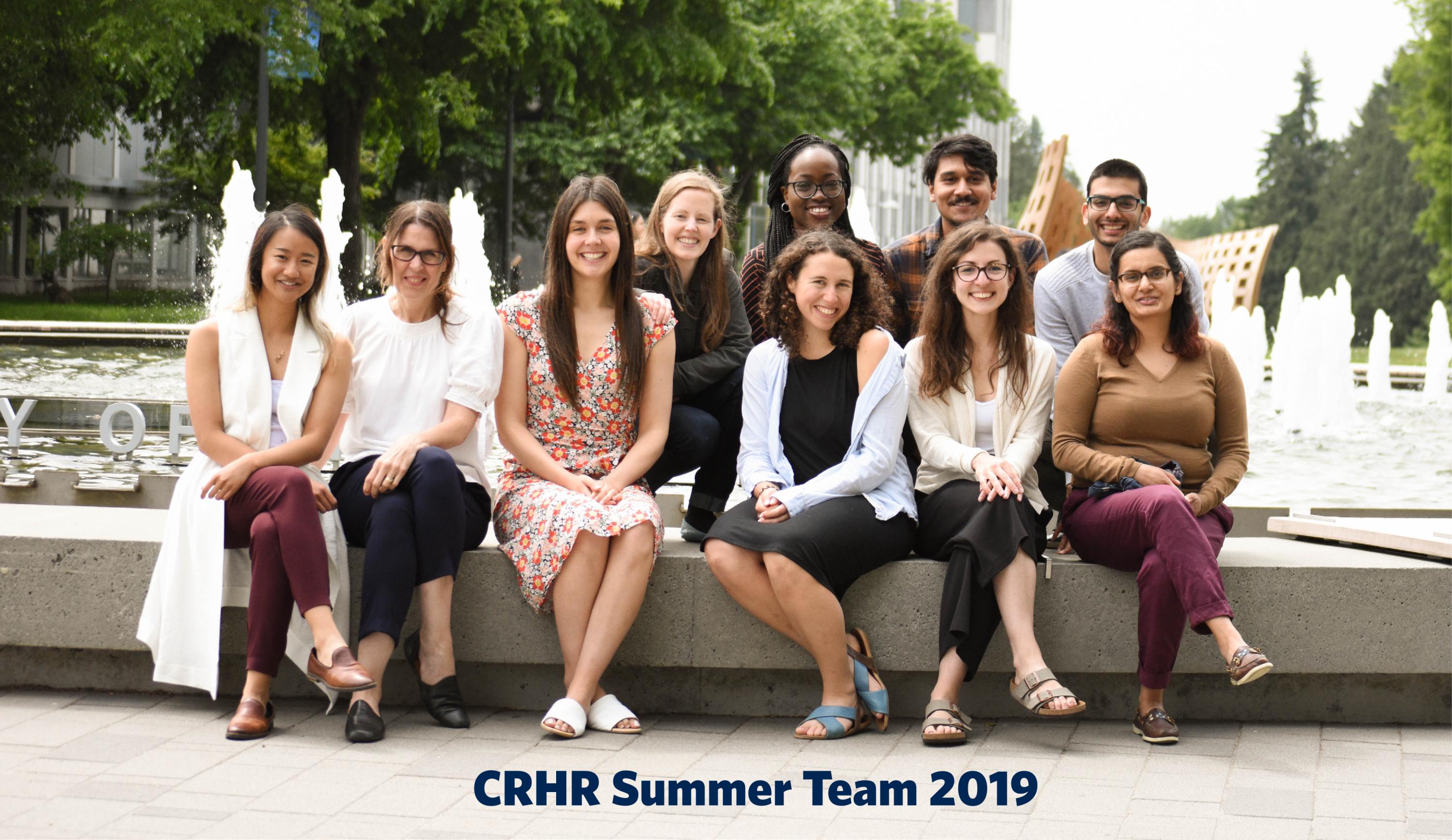Our core team is based in Vancouver. We work closely with our collaborative partners in the BC Ministry of Health, provincial Health Authorities, professional groups, and rural communities to plan and develop the strategies of the Centre.
The diversity of our expertise, backgrounds, and interests enhances our ability to comprehensively investigate the complexity of challenges and opportunities for rural health services across Canada and internationally.
Co-Directors
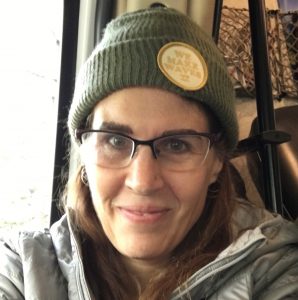 Jude Kornelsen, PhD, is a health services researcher and Associate Professor in the Department of Family Practice at UBC who has a focused program of research on rural maternity care. As co-director of the Centre for Rural Health Research, her primary focus involves rural maternal health issues including the emergence and integration of midwifery in our health care system. In this position Dr. Kornelsen works toward creating productive research environments and coordinates and oversees student positions. She has undertaken numerous funded studies on rural women’s experiences of care and additionally directs a program of research into the emerging social phenomenon of elective cesarean section. Dr. Kornelsen is a former CIHR New Investigator, a Michael Smith Foundation for Health Research Scholar and an Honorary Associate Professor at the University of Sydney.
Jude Kornelsen, PhD, is a health services researcher and Associate Professor in the Department of Family Practice at UBC who has a focused program of research on rural maternity care. As co-director of the Centre for Rural Health Research, her primary focus involves rural maternal health issues including the emergence and integration of midwifery in our health care system. In this position Dr. Kornelsen works toward creating productive research environments and coordinates and oversees student positions. She has undertaken numerous funded studies on rural women’s experiences of care and additionally directs a program of research into the emerging social phenomenon of elective cesarean section. Dr. Kornelsen is a former CIHR New Investigator, a Michael Smith Foundation for Health Research Scholar and an Honorary Associate Professor at the University of Sydney.
 Stefan Grzybowski , MD, CCFP, MClSc, FCFP, is a Professor in the Department of Family Practice at UBC and a family physician with many years of rural clinical experience. He is Director of Research in the Department of Family Practice at UBC and has held a Michael Smith senior scholar award. He has a longstanding interest in rural health services research and building research capacity, both of which are exercised through his current positions as co-Director of the Centre for Rural Health Research and Director of the Rural Health Services Research Network of BC. His current research foci include the safety of small rural maternity services with and without cesarean section capacity and systems planning of appropriate and sustainable rural health services.
Stefan Grzybowski , MD, CCFP, MClSc, FCFP, is a Professor in the Department of Family Practice at UBC and a family physician with many years of rural clinical experience. He is Director of Research in the Department of Family Practice at UBC and has held a Michael Smith senior scholar award. He has a longstanding interest in rural health services research and building research capacity, both of which are exercised through his current positions as co-Director of the Centre for Rural Health Research and Director of the Rural Health Services Research Network of BC. His current research foci include the safety of small rural maternity services with and without cesarean section capacity and systems planning of appropriate and sustainable rural health services.
Research Team
Rural Surgical Obstetrics Network (RSON)
Research Coordinators
 Dr. Kathrin Stoll is a social scientist with degrees in psychology, family studies and interdisciplinary studies. Her PhD spanned three disciplines (public health, nursing and midwifery) and she completed a five-year postdoctoral fellowship in Population and Public Health at the University of British Columbia (UBC) and a one-year CIHR fellowship in primary health care research. Since 2005, Dr. Stoll has held various research positions in the Division of Midwifery at UBC and worked closely with epidemiologists, clinicians, community members and researchers, on various research and knowledge implementation projects in the area of reproductive health. Between 2007 and 2012, she served as co-editor of the Canadian Journal of Midwifery Research and Practice. In addition to her position at the Birth Place Lab, Dr. Stoll holds an appointment as lecturer at Hannover Medical School in Germany, where she has taught and supervised midwifery graduate students since 2012. Dr. Stoll has led the development of many innovative measurement instruments, and is working on several projects oriented at enhancing equitable access to respectful and person-centered pregnancy and birth care, especially for those at increased risk for discrimination, reduced access to care, and poor clinical outcomes. To recognize her work in rural maternity care research, she was recently invited to become a fellow at the Centre for Rural Health Research.
Dr. Kathrin Stoll is a social scientist with degrees in psychology, family studies and interdisciplinary studies. Her PhD spanned three disciplines (public health, nursing and midwifery) and she completed a five-year postdoctoral fellowship in Population and Public Health at the University of British Columbia (UBC) and a one-year CIHR fellowship in primary health care research. Since 2005, Dr. Stoll has held various research positions in the Division of Midwifery at UBC and worked closely with epidemiologists, clinicians, community members and researchers, on various research and knowledge implementation projects in the area of reproductive health. Between 2007 and 2012, she served as co-editor of the Canadian Journal of Midwifery Research and Practice. In addition to her position at the Birth Place Lab, Dr. Stoll holds an appointment as lecturer at Hannover Medical School in Germany, where she has taught and supervised midwifery graduate students since 2012. Dr. Stoll has led the development of many innovative measurement instruments, and is working on several projects oriented at enhancing equitable access to respectful and person-centered pregnancy and birth care, especially for those at increased risk for discrimination, reduced access to care, and poor clinical outcomes. To recognize her work in rural maternity care research, she was recently invited to become a fellow at the Centre for Rural Health Research.

Gal Av-Gay is the Quantitative Research Coordinator for the RSON Evaluation. He was raised on campus, where he also completed both his BSc in Biochemistry and MSc in Statistics. He is excited to derive insight from rural health data in order to assess and improve health outcomes for rural populations across BC. Gal sees how an understanding of rural health in BC needs to be informed by socioeconomic, cultural, and historical perspectives. In his spare time Gal enjoys playing music and shooting hoops.
Anshu Parajulee is the part-time Coordinator of the Rural Surgical and Obstetrical Networks (RSON) Evaluation. Anshu holds a Master of Public Health (MPH) with a specialization in Global Health from Simon Fraser University. For her MPH practicum, Anshu worked with a sex worker collective in South India to complete a situational analysis of female sex work in a district that had recently opened a collective chapter. Since completing her MPH, Anshu has evaluated a variety of health related initiatives and worked with different organizations including CRHR at UBC, Fraser Health, Alberta Health Services, Tufts Clinical and Translation Science Institute, and the Young Professionals Chronic Disease Network. Anshu is passionate about social justice. She aims to contribute to the improvement of health services and the alleviation of health disparities, locally and globally, through research and evaluation.
FLEX Students

Clay Kiiskila is a medical student at the University of British Columbia in the Northern Medical Program. Prior to entering medical school, he completed his BHSc at the University of Northern British Columbia. Through growing up in northern BC and travelling to rural and remote communities across the province, Clay developed a deep interest in rural healthcare which was strengthened when he learned more about the health inequities experienced by these communities in his undergraduate degree. Clay is excited to be joining the CRHR team to work on the Core Services project and examine factors affecting the sustainability of Family Practice Anesthesiologists at rural hospitals. In his spare time he enjoys camping, fishing, and playing sports.
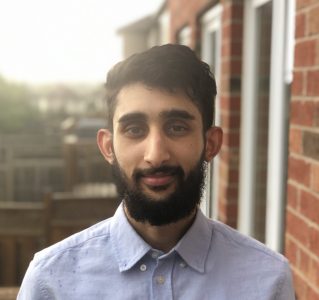 Amolpreet Toor is a UBC medical student in the Vancouver Fraser Medical Program. Before entering medical school, he completed his BMSc in physiology and interdisciplinary medical sciences at Western University. Amolpreet is excited to be joining the CRHR team to work on the Rural Surgical and Obstetrical Network and investigate the role of Family Practice Anesthetists (FPAs) in rural chronic pain management. He became interested in this project after learning about the significant role FPAs play in sustaining rural surgical and maternal practices. In his spare time, Amolpreet enjoys drawing, traveling, and playing soccer.
Amolpreet Toor is a UBC medical student in the Vancouver Fraser Medical Program. Before entering medical school, he completed his BMSc in physiology and interdisciplinary medical sciences at Western University. Amolpreet is excited to be joining the CRHR team to work on the Rural Surgical and Obstetrical Network and investigate the role of Family Practice Anesthetists (FPAs) in rural chronic pain management. He became interested in this project after learning about the significant role FPAs play in sustaining rural surgical and maternal practices. In his spare time, Amolpreet enjoys drawing, traveling, and playing soccer.
Rural Health Services Research Network of BC
Research Network Coordinators, RHSRNbc

Kishore Hari recently completed his Master of Public Health degree at the School of Population and Public Health at the University of British Columbia. He completed his Bachelor of Science degree in Pharmacology and Physiology at the University of British Columbia. In the past, Kishore has worked as a Digital Health Researcher and also completed a practicum project focused on the provision of medical abortion care from an administrative and clinical perspective within BC. He is passionate about improving health service delivery for under-served populations, particularly those living within rural settings.
Network Research Assistant, RHSRNbc
 Urvee Karve is an undergraduate student at UBC majoring in Geography (Environment and Sustainability). She is really interested in contributing to the new GIS project to build catchment maps for rural BC and understanding how this could better rural health. Since she is passionate about sustainability, she wants to help better the quality of life in rural BC by understanding more about rural health and the availability of high quality facilities, as well as their sphere of influence. Other than her passion for Geography, she volunteers at BC SPCA (animal shelter), and enjoy activities such as hiking, painting and dancing.
Urvee Karve is an undergraduate student at UBC majoring in Geography (Environment and Sustainability). She is really interested in contributing to the new GIS project to build catchment maps for rural BC and understanding how this could better rural health. Since she is passionate about sustainability, she wants to help better the quality of life in rural BC by understanding more about rural health and the availability of high quality facilities, as well as their sphere of influence. Other than her passion for Geography, she volunteers at BC SPCA (animal shelter), and enjoy activities such as hiking, painting and dancing.
Rural Community Resiliency to Climate Change Research Coordinator
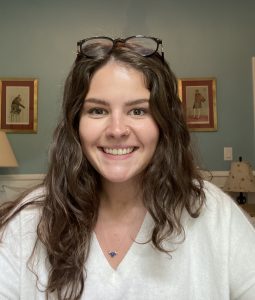
Alexandra Bland is the Research Assistant for the Co-RIG project examining rural resiliency during the COVID-19 pandemic. She holds an BA in International Relations from the University of British Columbia and an MSc in Health and International Development from the London School of Economics and Political Science. Her past research has primarily focused on global health and health disparities in low and middle income countries. The topic of her MSc dissertation was evaluating effective pneumonia prevention strategies to reduce under-five pneumonia mortality in high burden countries. She is passionate about health equity, health systems strengthening and the social determinants of health. Outside of work Alex loves to bake and go hiking with her dog Alfie.
Research Associates

Dr. Rahul Gupta, MD, CCFP works as an integrative medical physician, professional coach, mindfulness instructor, and advocate for provider wellness. He is a Certified MBSR Teacher through the Center for Mindfulness to facilitate Mindfulness-Based Stress Reduction Programs and offers this service to both providers and patients. He also is a professional coach accredited by the International Coaching Federation and supports physicians as a consultant for the Physician Health Program of BC. He lives and works in Gibsons, BC and travels throughout the province to speak on the topics of patient self-management and provider self-care.
Rahul is a Clinical Assistant Professor for the UBC Department of Family Practice and recently completed its Clinician Scholar Program. He can be reached at gupta.v2v@gmail.com or visit www.voice2vision.net.

Dr. Ilona Hale, MD, CCFP has been practicing as a rural family physician in Kimberley BC since 1997 after graduating from University of Ottawa medical school and the UBC rural family medicine residency. In 2016 she joined the UBC Department of Family Medicine Clinician Scholar Program to support her growing interest in becoming a clinician researcher. Her main passion is community-based health promotion but she is also interested in efficient health care utilization, polypharmacy and rural and environmental health. Her current research is focused on obesity prevention during infancy and community-based health promotion in rural areas. She is the chair of a charitable non-profit society board, Healthy Kimberley (www.healthykimberley.weebly.com) which helps guide the direction of the community-based research.

Robert F Woollard, MD, CCFP, FCFP Professor, UBC Department of Family Practice Dr Woollard is Professor of Family Practice at UBC. He has extensive national and international experience in the fields of medical education (chair of accreditation system for 7 years), the social accountability of medical schools, ecosystem approaches to health, and sustainable development. He is actively involved in Nepal with a new national medical school, school of public health, and nursing school founded on the principles of social accountability, and also works in East Africa on matters of social accountability, primary care, and accreditation systems. He co-chairs the Global Consensus on Social Accountability for Medical Schools (GCSA) and does extensive work in this area with many international bodies. He was a lead organizer for the planned World Summit on Social Accountability: http://thenetworktufh.org/conferences/ and https://www.youtube.com/watch?v=dTn1ddxAnsQ. His primary research focus is the study of complex adaptive systems as they apply to the intersection between human and environmental health. His book, “Fatal Consumption: Rethinking Sustainable Development” details some of his work in this regard. He also provides central leadership in the development of a Canadian national strategy for addressing educational and service needs for surgical and obstetrical services in rural Canada—in particular Aboriginal service access for birthing. He was instrumental in establishing the mobile clinic for agricultural workers and continues the active practice of medicine. Above all he is a husband, father and grandfather.
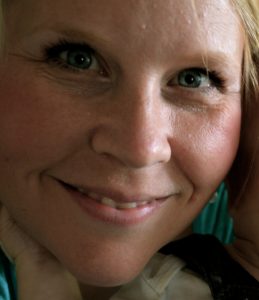 Katrina Plamondon joined the University of British Columbia Okanagan, School of Nursing as an Assistant Professor in July 2019. She is also a Practice Leader for Research and Knowledge Translation at Interior Health (British Columbia), where her work focuses on health system strengthening through enabling people across the system to use and do research in practice and policy. She is a Registered Nurse with a clinical foundation in critical care/emergency and street outreach and a Master of Science in Community Health & Epidemiology (University of Saskatchewan). She completed her PhD at the University of British Columbia under a Banting & Best Canada Graduate Scholarship, where her doctoral research extended a decade of research and practice in knowledge translation with a focus on knowledge-to-action for health equity. A member of the Canadian Coalition for Global Health Research since 2004, Katrina co-chairs the University Advisory Council (comprised of representatives from 24 institutions across Canada) to promote more consistent, coherent investments and practices in global health research. She was the Principal Investigator for the multi-year Gathering Perspectives Studies that led to the creation of the equity-centred CCGHR Principles for Global Health Research (available here: www.ccghr.ca/resources/principles-global-health-research/) and the lead on a series of publications contributing to national dialogue about Canada’s role in global health research. She is frequently invited to present on equity-centred practices for research and knowledge translation, ranging from conferences to guest lectures and intensive training institutes.
Katrina Plamondon joined the University of British Columbia Okanagan, School of Nursing as an Assistant Professor in July 2019. She is also a Practice Leader for Research and Knowledge Translation at Interior Health (British Columbia), where her work focuses on health system strengthening through enabling people across the system to use and do research in practice and policy. She is a Registered Nurse with a clinical foundation in critical care/emergency and street outreach and a Master of Science in Community Health & Epidemiology (University of Saskatchewan). She completed her PhD at the University of British Columbia under a Banting & Best Canada Graduate Scholarship, where her doctoral research extended a decade of research and practice in knowledge translation with a focus on knowledge-to-action for health equity. A member of the Canadian Coalition for Global Health Research since 2004, Katrina co-chairs the University Advisory Council (comprised of representatives from 24 institutions across Canada) to promote more consistent, coherent investments and practices in global health research. She was the Principal Investigator for the multi-year Gathering Perspectives Studies that led to the creation of the equity-centred CCGHR Principles for Global Health Research (available here: www.ccghr.ca/resources/principles-global-health-research/) and the lead on a series of publications contributing to national dialogue about Canada’s role in global health research. She is frequently invited to present on equity-centred practices for research and knowledge translation, ranging from conferences to guest lectures and intensive training institutes.
Manager of Morale Support & Wiggles
 August (Auggie) is the Manager of Morale Support and Wiggles at the Centre for Rural Health Research. Auggie has nearly 1.5 years of experience supporting mental health in a variety of group settings, and is committed to helping her team of rural health researchers to achieve success and well-being. She can often be found circulating the office, ensuring everyone is well cared for and that all snacks are sufficiently tasty. Auggie has her Master’s in Rural Health Paw-licy and a BSc in Wag-riculture (with a minor in Herding) from the University of Goodest Dogs, Australia.
August (Auggie) is the Manager of Morale Support and Wiggles at the Centre for Rural Health Research. Auggie has nearly 1.5 years of experience supporting mental health in a variety of group settings, and is committed to helping her team of rural health researchers to achieve success and well-being. She can often be found circulating the office, ensuring everyone is well cared for and that all snacks are sufficiently tasty. Auggie has her Master’s in Rural Health Paw-licy and a BSc in Wag-riculture (with a minor in Herding) from the University of Goodest Dogs, Australia.
